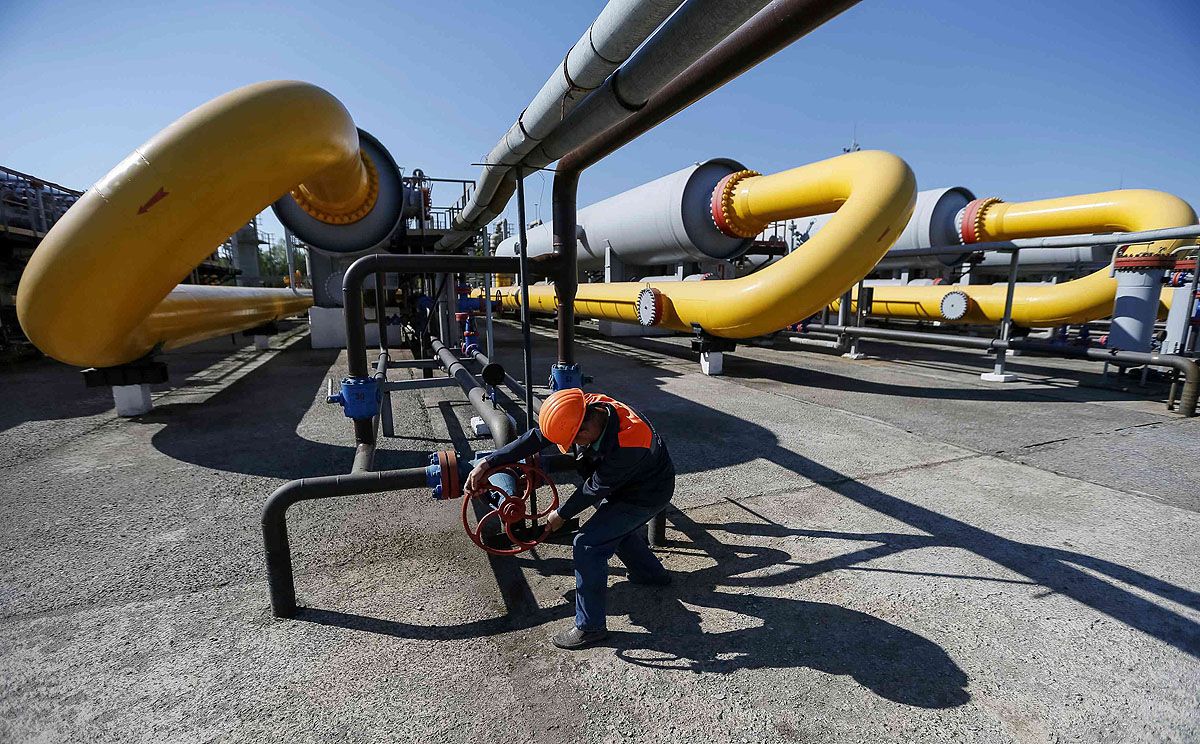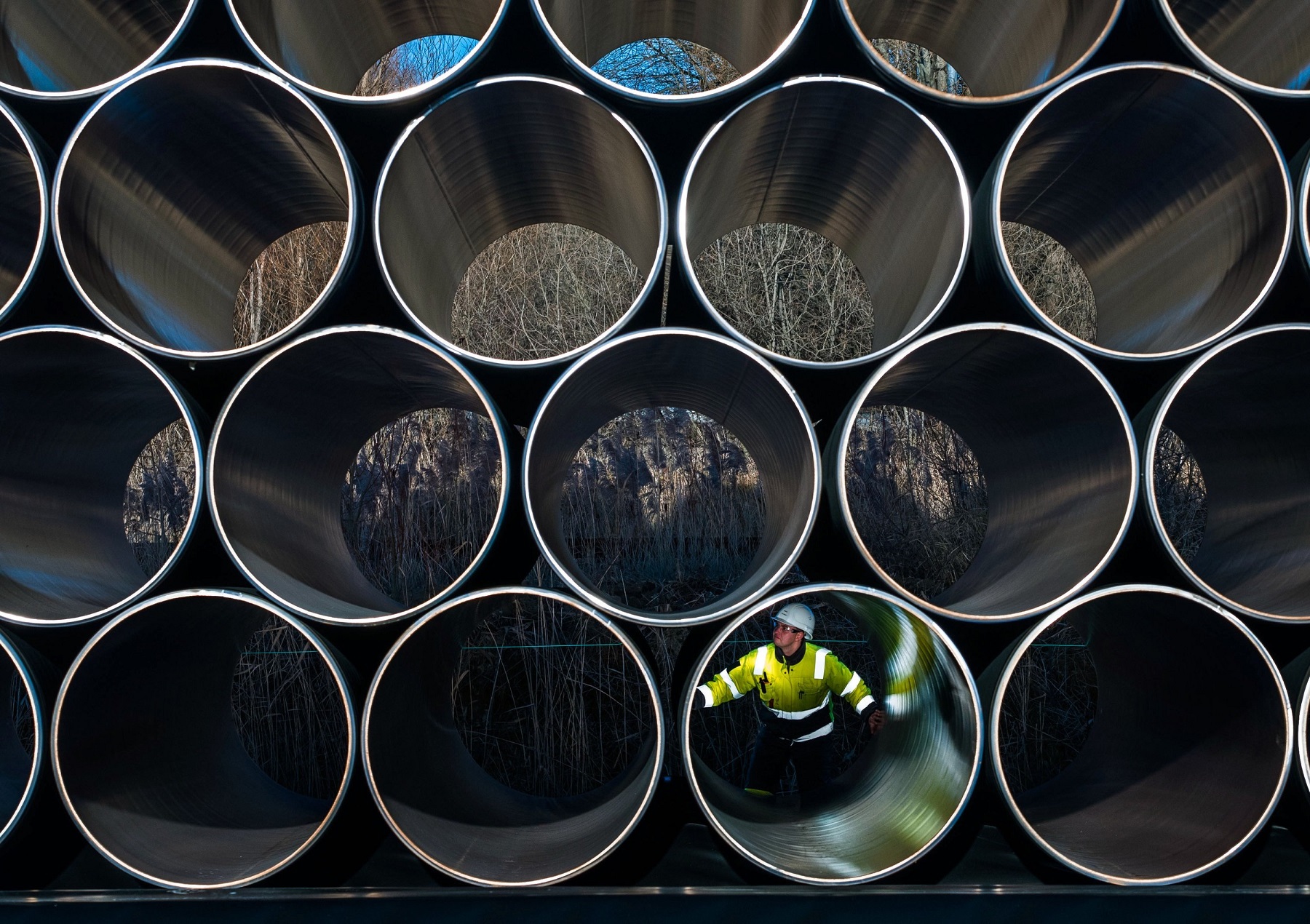
Ukraine decided to stop purchases of Russian gas on November 25, adding it will continue to transport Russian gas to European consumers in full accordance with existing contracts. Against this backdrop, Natural Gas Europe asked six experts the same questions to understand their view on the current situation.
“Do you think that Ukraine has enough gas in its storage facilities to get through the winter? Do you think Kiev will buy gas from Russia in the coming months? What are the complexities there? Do you expect any issues with transportation of Russian gas to Europe?”
Anna-Kaisa Itkonen, Spokesperson for Climate Action and Energy, European Commission
We are not particularly concerned about the gas flows from Russia to Ukraine at the moment. The gas flows to the EU are normal. The storage level (in Ukraine) is around 16.5 bcm at the moment, which is approximately the same it was last year at the same time. Ukraine currently uses its own production as well as Slovakian gas flows. The weather conditions in November have been rather mild so far leading to below average consumption. Let’s not assume any problem yet. For the moment, the Commission is not particularly concerned about the gas flows. The parties are implementing the protocol according to which any delivery of gas to Ukraine requires pre-payment.
Jack Sharples, Professor at the Department of Political Science and Sociology, European University at St. Petersburg
I think Ukraine has enough gas in storage to last the winter. Ukraine has more gas in storage than it did a year ago. So, all other factors being equal, the amount in storage should be sufficient. However, the amount that Naftogaz withdraws from storage this winter will depend on patterns of consumption and supplies (imports), which may be difficult to predict.
Ukraine will not import any more Russian gas before the end of 2015, but could resume imports in 2016. It is a question of both price and politics. For the next month at least, Naftogaz will survive on a combination of gas storage and imports from Europe.
Speaking about complexities, the first is the weather, which we cannot predict, and will have a strong influence on levels of Ukrainian gas consumption. We cannot take a repeat of last year for granted. The second complexity is Ukraine’s energy balance. In trying to reduce its gas import dependency, Ukraine has become more dependent on coal. But the conflict in Eastern Ukraine has badly affected Ukrainian coal production, and imports from Russia were suspended on the 27th of November. A shortage of coal could increase gas demand. In the context of suspended gas imports from Russia, this could lead to gas shortages in Ukraine, unless sufficient volumes are purchased from Europe to bridge the gap.
At the moment, I don’t expect any issues with the transportation of Russian gas to Europe. As long as Ukraine continues to import gas only from Europe, a suspension of transit is unlikely. The previous interruptions in gas transit (in 2006 and 2009) were caused by breakdowns in negotiations over Russian gas supplies to Ukraine. At present, neither Russia nor Ukraine would gain anything from a suspension of gas transit: Russia wishes to continue supplying its European customers, and the Ukrainian government and Naftogaz wish to retain good relations with European governments and energy companies.
Marat Terterov, Founder and Director, Brussels Energy Club
Yes, I think Kiev will continue to buy gas from Moscow, although the trends of reduced volumes as well as ad hoc suspension of purchases is likely to continue further. Ukrainian energy officials recently told me that Ukraine has a good deal on Russian gas at present in terms of the price currently being paid by Kiev (ie, about $248/1000 m 3 in the middle of the year and coming down further). They add that Ukraine is pumping plenty of gas into storages but I do realise there are some questions being asked about the capacity of Ukrainian gas storage.
My own feeling, talking to Ukrainians, is that we are ‘far from a disaster’ (in terms of volumes in storages) at the moment. However, its hard to know the real truth. Ukrainians add that Russia (Gazprom) has a good deal on gas transit (receiving more than $3/1000 m3 per 100km). My take is that the Ukrainians want to keep Gazprom as the default supplier and need Gazprom in order to ensure their transit revenues. However, they don’t want Gazprom to dominate (or bully them, for that matter) and its normal that they are trying to haggle on price and volumes against the backdrop of the January 2008 Putin-Tymoshenko 10 year gas deal.
All of this should help Kiev ‘buy time’ in order to, like the EU, consider its diversification options. There is a plan inside Ukraine for the country to be energy independent in 5 years time and the country certainly has a lot of capacity to produce gas. However, it has big issues with the investment climate for upstream investments and the country is currently facing a legal case on the basis of the Energy Charter Treaty. There are also aspirations for Ukraine to become a gas trading hub on its eastern border with Russia, not on its Western border (with Slovakia), and Kiev is looking to apply Energy Community rules in order to make this happen.
Ukraine also remains very interested in (non-Gazprom) LNG supplies reaching the country (either by tanker via the Turkish straights, although the Turks are blocking passage at the moment, or via the Baltics). They also seem to be glad to be receiving gas from Norway via the European grid, although I suspect this is not cheaper than Russian gas (they have been given a soft loan of $300 million by the EBRD to buy reverse flow gas as you may know).
Finally, the ‘wild card’ in all of this remains the unresolved conflict in the Donbass. For much of this year, I was one of those experts that thought a hard security crisis would not spill over into a crisis of European energy security. Now I am not so convinced. Ukraine’s efforts to block electricity flows to the Crimea and to close its airspace to Russian commercial (and military) aviation, will likely result in Russian responses. I can no longer rule out that Russian responses will not include something to do with ‘issues with transportation of Russian gas to Europe’ as you say. While a crisis of this nature is not imminent, I would be monitoring things very closely at the present time (despite the low oil price we have at present, which should lead to less tension in terms of energy security).
Cillian O’Donoghue, Senior Account Manager, FleishmanHillard
Firstly, it is important the acknowledge that the situation is significantly different compared to previous years. Indeed, The share of Gazprom supplies to Ukraine has fallen from 92% in 2013 to 75% in 2014 and 37% in the first half of 2015. Indeed, Europe, not Russia, is now the main direct supplier to Ukraine. Until 2014, Ukraine could import gas only from the West via Poland (1.5 bcm a year) and Hungary (5.5bcm) which was not sufficient in the event of a cut off from the East given that Ukraine’s current demand for imported gas is estimated at 15-18 bcm/year. To a large extent, the launch of the Slovak Ukraine route has eliminated critical dependence on Russian gas imports. Since the fall out in relations over Crimea, Ukraine has negotiated with European suppliers and participated in launching new interconnector between Slovakia and Ukraine. Indeed, now Ukraine’s needs of imported gas can almost entirely be covered by supplies from Europe. While Ukraine has focused on diversification, more efforts should be made to improve energy efficiency in Ukraine which lags far behind. For what concerns Kiev and its gas needs, I think Ukraine will buy gas from Russia as it is in the interests of both parties to reach an agreement. Indeed 12 months ago, in an even more intense political situation, parties managed to agree to the ‘Winter Package’ signed on 31 October 2015. If an agreed was reached last year, when the political obstacles were much greater, an agreement should be reached this year. Finally, an added complexity is the ongoing SCG process. Last year, the Winter package was an important tool which alleviated the risk of interruption of gas supplies by Russia to Europe during the winter season 2014-2015 but in the end, the final ruling in the ongoing pricing dispute between Naftogaz and Gazprom will be made by the SGC. The Winter Package agreements are temporary and do not affect the positions of the parties in court.
Carlo Frappi, Research Fellow, ISPI
Recent data provided by Naftogaz show a gas storage level sufficient to ensure a winter season free from major supply risks for Ukraine. Although failing to reach the storage level advocated by the authorities in Brussels (i.e. 20 Bcm), the 16,9 Bcm of gas currently stored shall be enough to satisfy Ukrainian domestic winter demand, foreseen at around 19 Bcm.
The relative serenity ensured to the Ukrainian authorities by both the current storage levels and the possibility to get gas from Central European markets allows Kiev to seek a further discount on Russian gas prices before starting to import more volumes. The more so since the winter season promises to be mild. Therefore, rhetorics aside, no major issues are expected with transportation of Russian gas to Europe, as well as with European gas consumption.
Having said so, although the conjuncture seems to play into Kiev’s hand, it is unthinkable for the EU and its member states to remain a hostage much longer of relations between the inefficient Naftogaz and Gazprom. The privatization of the Ukrainian company and the reform of the national energy sector represent a top priority in order to untangle the Ukrainian knot, along with the necessity to put EU-Russian energy relations back on track, overtaking a long phase of mutual mistrust and allegations which are counterproductive for both parties. But this, obviously, is part of a wider issue both more urgent and difficult to be tackled.
Tatiana Romanova, Associate Professor, St. Petersburg State University
They reportedly have more than they had last year (about 16 bcm), which should be sufficient to pass the winter season if it is warm enough… If the winter is severe, it will be more tricky.
The refusal is declaratory rather than real, it is a demonstration since they have not bought much recently anyways. It is interesting that each side tried to capitalise the decision and to make a PR event: Gazprom saying that they seized supplying while Ukraine declaring that they stopped buying. Slightly changing topic, I don’t expect issues with transportation of Russian gas to Europe. I don’t think there will be any problem. In fact, I believe that a good time is coming for Ukraine. The Commission declared that they want to preserve the role of Ukraine in the transportation. Russia got disappointed with the partnership with Turkey and has now the pretext to finish the Turkish Stream, which does not make much economic sense. Both Russia and the EU want to deescalate the situation in Ukraine, which will allow them to get rid of some sanctions and concentrate better on the Middle East. So, we can see more of the negotiations on the transit here in the coming weeks/months.
- This piece first appeared on Brussels Energy Club


